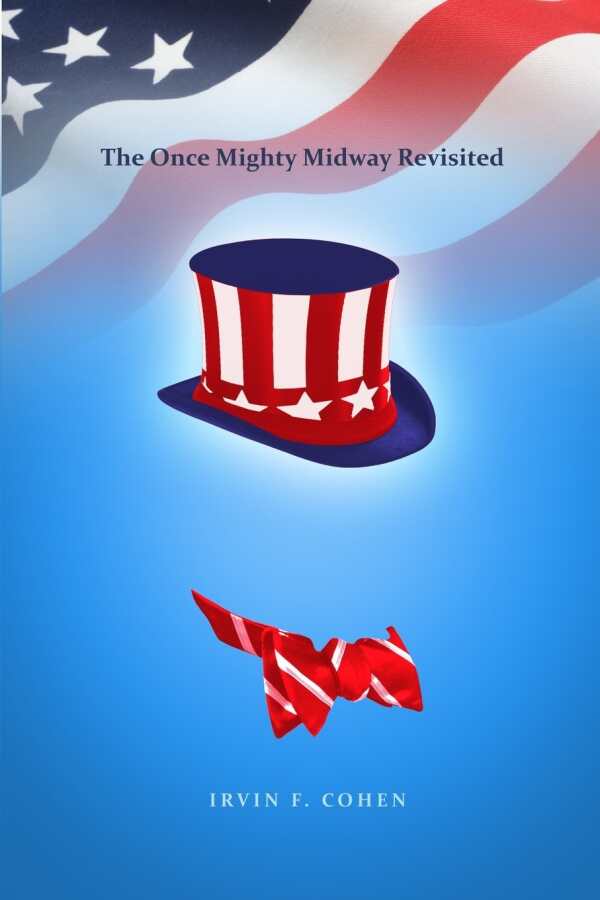
The Once Mighty Midway Revisited
Cohen is writing in the grand tradition of the ubi sunt elegy, plaintively inquiring where the values of a previous age have gone.
Irvin F. Cohen styles himself as a “lifelong conservative voice crying out in the wilderness” of contemporary America’s moral decay and communist leanings in his first book, The Once Mighty Midway Revisited, a thinly veiled allegory in the form of an epic poem.
A Vietnam veteran, Cohen writes out of great love for America, but also expresses worry, even despair, over its current circumstances. His book, in turn, contrasts the traditional values of the Greatest Generation with subsequent generations’ decadence and moral relativism.
As a child, the poem’s narrator was lured by the carnival and its awe-inspiring band of misfits. When the narrator returns to the Once Mighty Midway carnival twenty years later, however, he pities the carnies, especially after an invading biker gang beats them up. This attack is likened to an “all-out assault upon traditional middle-class” values. The narrator mourns the loss of the principled Greatest Generation, which he contrasts with a new age devoted to excess and liberalism.
This free-verse epic is characterized by alliteration and arresting vocabulary rather than a deliberate rhyme scheme. The sibilance in “spellbound spiels” and “hisses dubious hermeneutics” is particularly striking. Elsewhere, inventive consonance in phrases like “ideological / louts and lilliputians all” and “rapacious paunches” reinforce the strident tone. The poet also uses terms ironically to redefine them, as when he equates the “Brave New World” of the next generation with an “Age of Unreason.” This iconoclastic age scoffs at traditional morality and wisdom, the narrator sighs, and instead prioritizes what feels right.
Cohen is writing in the grand tradition of the ubi sunt elegy, plaintively inquiring where the values of a previous age have gone. The narrator laments the lack of larger-than-life pioneers and war heroes in modern America, asking rhetorically, “where are those giants / who once roamed our shores”? References to ancient Greek and Roman literature are a testament to the author’s love of Homeric verse and lend weight to the text.
Although the work shows literary skill, it is less satisfying as a narrative. The book frequently departs from the carnival allegory to indulge in opinionated asides. The format does not allow for explanations of exactly how liberalism is destroying America, so the recurring criticisms (e.g., “communist dribble” and “Marxist spittle”) often feel like mere knee-jerk insults, some of them downright offensive (“diesel dyke femmee-Nazis”). Some habitually redundant phrases, such as “once more again” and “yet still more,” add to that sense of repetitiveness.
The clearest account of the poet’s ideology comes through in the prefatory materials, but together the foreword, preface, and prologue take up too much space and reveal a defensive and unpleasantly defiant attitude. Those who already agree with the author’s assessment of the American condition will nod along, but he’s unlikely to convert anyone from the other end of the political spectrum. Still, the book’s timing is right: An election year presents the best possible time to engage with this poetic diatribe.
Reviewed by
Rebecca Foster
Disclosure: This article is not an endorsement, but a review. The publisher of this book provided free copies of the book and paid a small fee to have their book reviewed by a professional reviewer. Foreword Reviews and Clarion Reviews make no guarantee that the publisher will receive a positive review. Foreword Magazine, Inc. is disclosing this in accordance with the Federal Trade Commission’s 16 CFR, Part 255.
